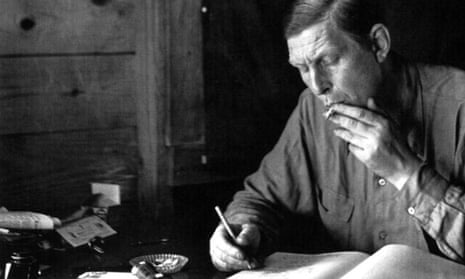“An anthology should be regarded as a public treasure.” And on the whole that is what Messrs W.H. Auden and Norman Holmes Pearson have made of their monumental Poets of the English Language, edited by Auden and Pearson (Eyre and Spottiswoode, 5 vols - I, Langland to Spenser, xlvi. 619; II, Marlowe to Marvell, xlvi. 556; III, Milton to Goldsmith, xliv. 622; IV, Blake to Poe, xxxviii. 535; V. Tennyson to Yeats, xlviii. 624; 15s per vol). It is the first systematic anthology from the mid-twentieth century viewpoint - which owes much to Eliot but more still to modern philosophic anxieties.
The stress is on the contemplative poem, and since contemplation is apt to be a long process “what we have given we have tried to give substantially.” The whole of Antony and Cleopatra, of Samson Agonistes, and Everyman, and great chunks of Chaucer and Pope in particular are included. Newly discovered poets like Edward Taylor are fully introduced (perhaps too fully) and others like Smart or Swift by implication revalued. As for the introduction, it is ‘fresh’ as the authors hoped and stimulating in the familiar Auden manner but disappointing. There are good generalisations, especially on the craft of verse, but much of the social comment is crudely oversimplified or merely inverts old prejudices.
One can - as always - also quarrel with the selection. There is some capriciousness in it: why should Pope have three times as much space as Dryden - and most of Dryden be the Hind and the Panther (good though it is)? Altogether there is an overrepresentation of second-rank religious and American poetry (even keeping in mind the book’s primarily American audience). Finally the sensuous lyric is comparatively neglected. That is understandable. We have not left Palgrave far behind; anthologists still fear the cult of the intense lyric moment he popularised. But in the selection of Victorians especially one senses the effects of the editors’ hostility: the lyric is after all basic to romantic verse. In throwing down one posture Messrs Auden and Pearson have enthroned another. Palgrave tended to turn the poets into skylarks and nightingales; they have preferred to turn them into greybeard contemplatives or case-histories of ‘significance’ in the ‘tradition’. But in being bold and yet so representative of the taste and faults of taste we now are heirs to they have complied what is obviously a most important anthology.
LF Duchene

Comments (…)
Sign in or create your Guardian account to join the discussion